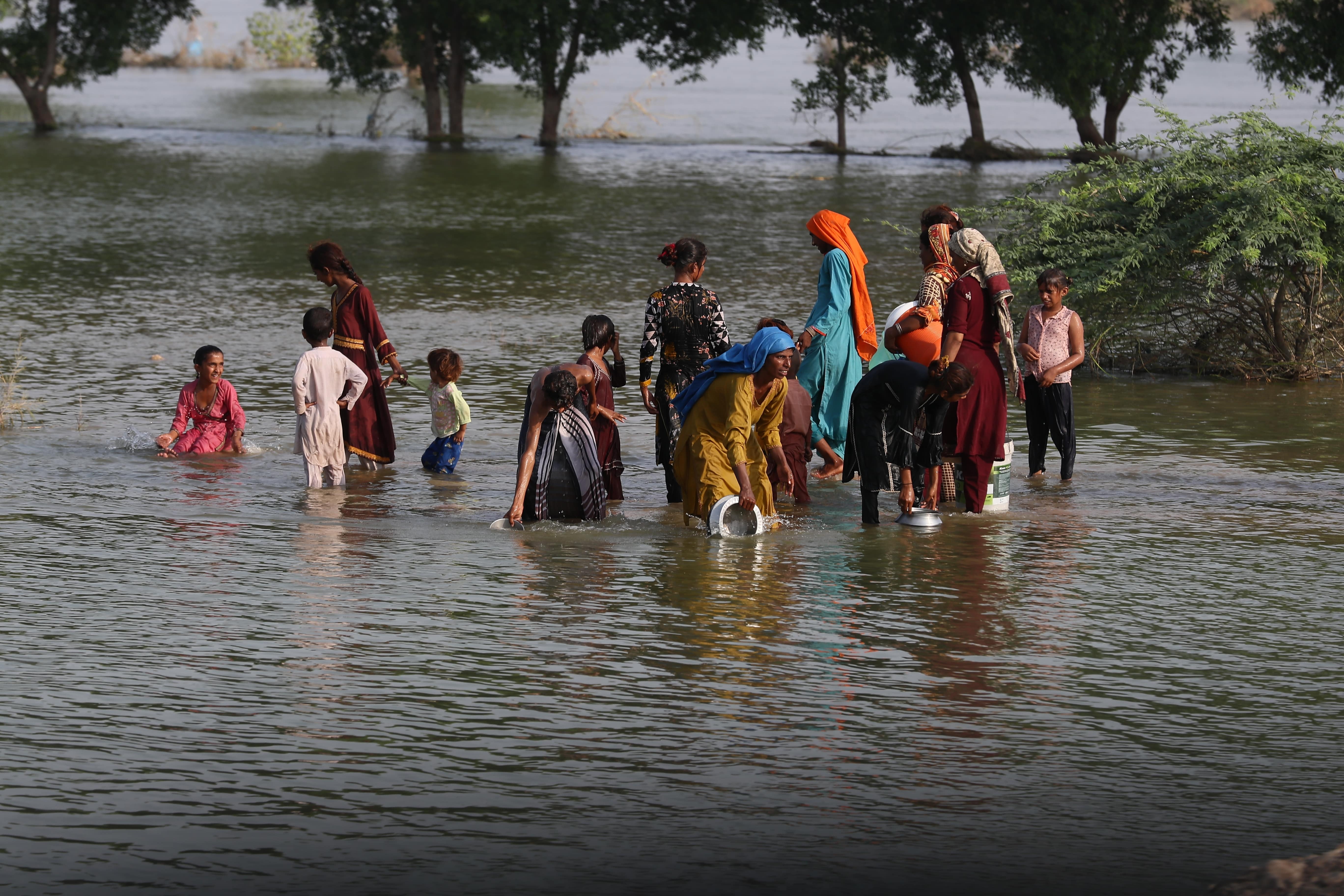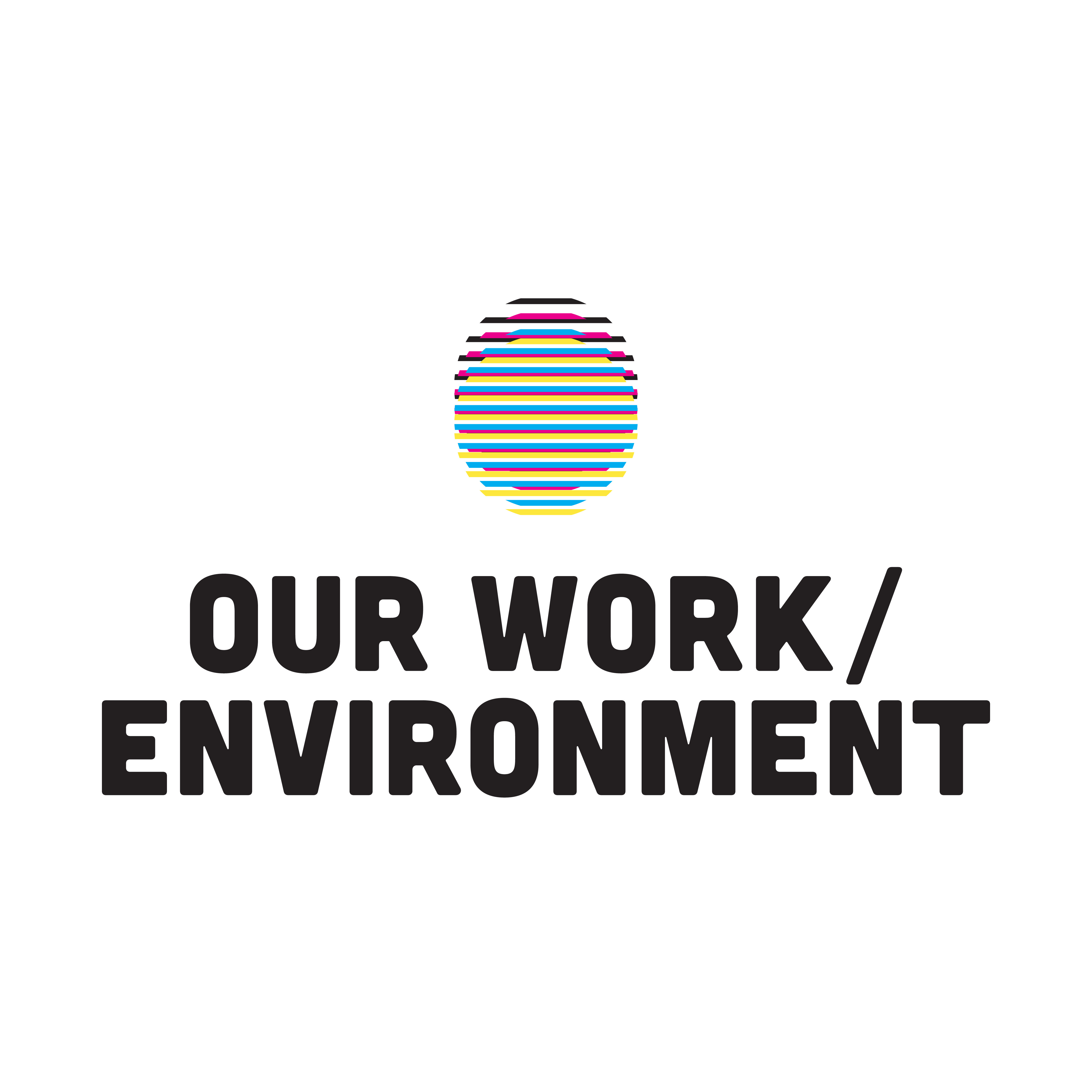Four months after a third of the country was underwater, Pakistan is still struggling to recover. The disaster affected more than 30 million people and is seen as a warning for other climate-vulnerable countries. As Fred de Sam Lazaro reports, recovery in the short- and long-term present complex challenges.

As a nonprofit journalism organization, we depend on your support to fund more than 170 reporting projects every year on critical global and local issues. Donate any amount today to become a Pulitzer Center Champion and receive exclusive benefits!
Read the Full Transcript
Geoff Bennett: Four months after a third of the country was underwater, Pakistan is still struggling to recover. The disaster affected more than 30 million people and is seen as a warning for other climate-vulnerable countries. As Fred de Sam Lazaro reports from Karachi, recovery in the short- and long-term present complex challenges. This report is produced in partnership with the Pulitzer Center.
Fred de Sam Lazaro: For decades, Karachi has been a magnet for migrants from conflict and climate disasters. Decades ago, it ran out of room. Dotting the city's outskirts are clusters of ramshackle dwellings. These have stood since the 2010 floods. Less than a mile away, crammed under high-voltage power lines, a 2022 wave of settlers.
Sikhandar Chandio, Flood Victim (through translator): When the water came, it came all of a sudden at night. We just managed to get out with whatever we could and had to abandon our animals.
Fred de Sam Lazaro: Sikhandar Chandio and his wife, Sughra, were sharecropper farmers. They escaped with their four children, and were able to save one cow. They journeyed here on foot, which took a week.
Sughra Chandio, Flood Victim (through translator): Everything was underwater. There were no facilities. There was no help, no food.
Fred de Sam Lazaro: Today, they rely on a patchwork of charities, everyone overwhelmed by what U.N. officials describe as one of the worst climate disasters on record, slamming a country that contributes less than 1 percent of the world's greenhouse gases.
Shehbaz Sharif, Pakistani Prime Minister (through translator): We have mobilized every available resource towards the national relief effort, and repurposed all budget priorities.
Fred de Sam Lazaro: Pakistan took the lead at this year's COP 27 climate conference, helping to secure agreement on a loss and damage fund to help developing nations cope. Just how those funds, if they appear, will be used is a concern.
Kaiser Bengali, Former Adviser, Pakistan Ministry of Planning and Development: But there is a fair amount of manmade responsibility for these floods, and politics plays a big part.
Fred de Sam Lazaro: Kaiser Bengali was a government adviser during the 2010 floods, Pakistan's worst until 2022.
Kaiser Bengali: I think it is also important to see how this fund will be utilized and how it will be implemented and whether the sociopolitical structures and the planning structures that need to be changed, made more effective happens.
Fred de Sam Lazaro: The 1,800-mile-long Indus River, lifeblood of Pakistan's agriculture sector, has been extensively engineered with dams and canals, beginning during British colonial times and ramping up in the 1960s with loans and advisers from international lending agencies.
Fred de Sam Lazaro: Has it been, in terms of food production, a reasonably good investment?
Kaiser Bengali: Certainly. Lands where not even a blade of grass grew now produce two crops a year. It's just that one has to manage this better.
Ahmed Kamal, Chairman, Pakistan Federal Flood Commission: Governance structure is not good.
Fred de Sam Lazaro: Governance structure.
Ahmed Kamal: So many loopholes in our governance sector. Our departments have been very badly deprived of the new tools, new technologies, new human resources.
Fred de Sam Lazaro: Ahmed Kamal has spent 33 years in government service, the top civil engineer at a federal agency that, back in 1977, was given the task, but not the resources, he says, to design a comprehensive flood management plan.
Ahmed Kamal: From that point until to date, about one-fifth, you can say, funding that was made available.
Fred de Sam Lazaro: So he didn't have money for implementation?
Ahmed Kamal: No money at all.
Fred de Sam Lazaro: Efforts have fallen short both in funding and engineering, he says. We walked by a weir, a dam-like structure intended to regulate flows of the Malia (ph) River near the Indus delta. It was no match for the 2022 floods.
Fred de Sam Lazaro: Is this a symbol of a larger problem?
Ahmed Kamal: Yes, this is a symbol of a larger problem, number one. Probably, the structure has not been built or maybe underdesigned. Number two, the workmanship is not good.
Fred de Sam Lazaro: Big-ticket infrastructure projects also account for much of the crushing debt burden of a country already drowning in deficits.
Kaiser Bengali: For every $100 of exports, our imports are $220. We need to cut down our expenditures, cut down imports.
Fred de Sam Lazaro: But Bengali does not see that happening in a country where he says a powerful insular elite is deeply vested in the status quo. Symbols abound of their lifestyle, he says.
Kaiser Bengali: You go to a supermarket in Karachi, Lahore, Islamabad it's difficult to find Pakistani-made stuff, Swiss cheese, Swiss chocolates, imported cat food, dog food, dog shampoo, cat shampoo. Two-thirds of the children of this country suffer from malnutrition, but we have to feed our pets imported stuff.
Fred de Sam Lazaro: Across wide swathes of flooded agricultural land, he adds, landless sharecroppers bore the brunt. And previous attempts to create new villages on higher ground have been resisted by powerful landowners.
Kaiser Bengali: The large feudals.
Fred de Sam Lazaro: The large feudals.
Kaiser Bengali: Yes, large landholders, because these people who live on their lands in small villages, isolated, low-lying, are their captive labor. If they were to move away into government villages, they would lose control over these people.
Fred de Sam Lazaro: For their part, the Chandios have no plans to return to their former life as sharecroppers.
Sughra Chandio (through translator): We don't have any land, and we don't have anything to go back to.
Sikhandar Chandio (through translator): And you know what landlords are like. They will first feed themselves before they think of feeding us poor people.
Fred de Sam Lazaro: They will squeeze in with millions of others, looking for odd daily wage work in cities increasingly unable to absorb them.
Nazish Brohi, Researcher: The city's infrastructure has pretty much collapsed. If places become uninhabitable, people need to survive. And where will people go now?
Fred de Sam Lazaro: Nazish Brohi, a Karachi-based researcher and writer who specializes in democracy, violence and social change, says, absent urgent action, the upheaval will spread far beyond this city and country.
Nazish Brohi: You had some few million people who left Syria and moved to Europe, and the whole of Europe's politics changed. Their entire political rhetoric was driven on the fear of these incoming migrants. And that was just conflict refugees that moved out of one country over two years, and then it stopped. What happens when the whole of global south just moves because it has nowhere to live?
Fred de Sam Lazaro: She and others hope that the government's pledge at the COP 27 conference will mark a turning point that builds resilience in what's become a never-ending task of rebuilding from one climate disaster to the next. For the "PBS NewsHour," I'm Fred de Sam Lazaro in Karachi, Pakistan.
Geoff Bennett: Fred's reporting is a partnership with the Under-Told Stories Project at the University of St. Thomas in Minnesota.










